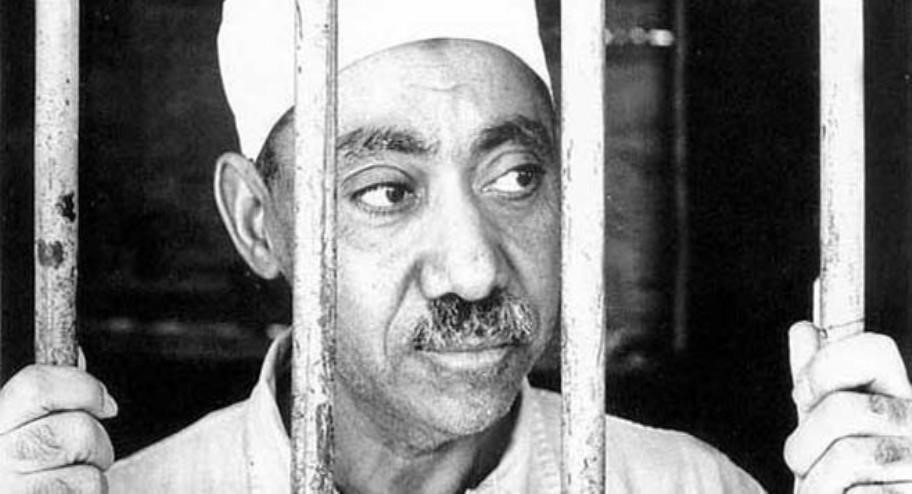
The Politicization of the Salafists - Salafism was originally a fundamentalist current focused on preaching – tablīgh [1] which later chose the rote of converging its doctrine with political authority, in terms of the existing regimes.
BY JADOU JIBRIL
THE PRESENCE OF the Muslim Brotherhood in Saudi Arabia has played a crucial role in the development of Salafism. Their repression in Egypt, which began in 1954, sent many Brotherhood members into exile and many were to find refuge in Saudi Arabia where they stood at the origins of the politicization of a branch of Saudi Salafists, the majority of whom were hitherto pacific and were against interfering in the political arena.
The context for the 1954 crackdown was that Gamal Abdel Nasser had banned the Muslim Brotherhood on January 12 of that year. At the beginning of the July 23 revolution, the Brotherhood had supported the revolution in Egypt carried out by the Free Officers Organization, and they were in fact the only civilian body that knew in advance the date of the revolution, since army officers were relying on them to confront the British and secure control of the state.
Along with all political trends and ideas held by Egyptian army officers at the time the Free Officers Organization also included a large number of officers affiliated with the Brotherhood. The Revolutionary Command Council proceeded to issue a decree dissolving all political parties in the country, with the exception of the Muslim Brotherhood. In January 1953, after the issuance of the law on the dissolution of parties in Egypt, a delegation from the Muslim Brotherhood came to the Revolutionary Command Council to inform Nasser that:
following the dissolution of the parties, there is none left to support the Revolution except the Brotherhood Group, and therefore they must be granted a position worthy of their role and indicative of the Revolution’s need for them. We demand that all laws and decisions to be taken by the Revolutionary Command Council before be presented prior to their issuance to the Office of Guidance for review as to their conformity with God’s law and our approval. This is are the conditions for our lending our support to you if you want this support.
Gamal Abdel Nasser, however, rejected this outright, as well as the idea that the Revolution should accept any form of tutelage, whether from the Brotherhood or from anyone else. Sometime later Gamal Abdel Nasser and a group of officers clashed with some of the Free Officer leadership, who were of the opinion that the officers’ role had ended with the deposition of the king and that the country must now be handed over to a civilian government and parliamentary life restored. One of these was the President of the Republic Muḥammad Naguib who was subsequently deposed. Abdel Nasser also severely clashed with the Brotherhood as a result of the Brotherhood’s demand for the officers of the Revolution to return to the barracks and restore parliamentary life to the country.
The hybridization of the methodologies of the Muslim Brotherhood and the Saudi Salafists led to the ‘Islamic Awakening’ movement
This led to the arrest of a large number of them after one of the group’s members was accused of attempting to assassinate Gamal Abdel Nasser in Manshia Square in Alexandria on October 26, 1954. Ever since then the group has remained banned but the authorities have, within limits, tolerated its activities. Note that the Brotherhood continued to consider the Manshia incident a fabricated scenario designed to eliminate his last opponents, the Brotherhood. Some of the group’s leaders (‘Abd al-Qādir ‘Awda, Shaykh Muḥammad Farghalī) were executed, and a number of Brotherhood members died under arrests while some others went missing.
In 1964 Gamal Abdel Nasser again arrested those from the Brotherhood who had been released, especially Sayyid Quṭb, under the pretext of discovering a plot to assassinate him. Sayyid Quṭb, was executed in 1966 along with five other Brotherhood leaders.
The hybridization of the methodologies of the Muslim Brotherhood and the Saudi Salafists – the Wahhābīs – led to the formation of al-Ṣaḥwa al-Islāmiyya, the ‘Islamic Awakening’ movement.
Active campaigns were conducted among the ranks of the youth for the implementation of highly conservative and anti-Western non-violent political reforms. By adopting the style of the Muslim Brotherhood, during the 1980s, Salafism was investing in the public arena. The Muslim Brotherhood ideology was thus providing Wahhābī Salafism with the political tools it lacked to take up an ‘ideological position’ against nationalism and socialism.

Suggested Reading
This path towards a ‘political awakening’ of the Salafī movement progressed and permitted the emergence in the decades following of Salafī-appointed political parties, some of whose members did not rule out violent activity: the Al-Nour Party in Egypt, the Anṣār al-Sharī‘a in Tunisia and the Jabhat al-Nuṣra (later Hay’at Taḥrīr al-Shām) in Syria.[2] This was without any opening up being made to the Muslim Brotherhood’s ‘doctrine’, which was characterized by an advanced degree of ijtihad.[3] Salafī Wahhābism adopted only their working methods or ‘organizational line’.
Moreover, in addition to taking up political themes, Wahhābī Salafism has welcomed and embraced the radical ideas crystallized by the same Sayyid Quṭb who had been marginalized by the Brotherhood leadership.
[1] Jamā‘at al-Tablīgh or Jamā‘at al-Tablīgh wal-Da‘wa is a global Islamic group that has dedicated itself to preaching Islam and asceticism. Its methodology is one of raising enthusiasm and employing spiritual and emotional influence. The movement was founded in British India in 1926 by Muḥammad Ilyās al-Kandhlawī and spread to most Arab and Islamic countries, and took it upon itself on the one hand to preach to those whom the Islamic call had yet to reach and bring them into Islam, and on the other hand to preach to Muslims the importance of observing the prayer as a pillar of the faith. It was famous for its refusal to participate in politics. The group quickly spread in India, followed by Pakistan and Bangladesh, and then moved on to the Islamic world and the Arab region where it had followers in Syria, Jordan, Palestine, Lebanon, Egypt, Sudan, Iraq, Saudi Arabia, Morocco, Qatar, Kuwait and Algeria. It went on to spread its preaching to most countries in the world. The group calls people to tawḥīd, to the worship of God and to follow His Prophet Muḥammad, as the one who was sent to all people, Arabs and non-Arabs, people of all colours and races. The members of the group believe in God and His angels and all the heavenly books brought by the prophets, in the Psalms, the Torah, the Bible and the Qur’ān, and believe in destiny be it for good or evil, in the Last Day, in Heaven and Hell, and they invite others to do the same..
[2] The Al-Nour Party is an Egyptian political party founded after the January 25 revolution. It is a civil party with a Salafī Islamic reference, considered by the Salafist Da‘wā Association in Alexandria to be its political arm. Its goal is to implement Islamic law and defend Egypt’s Islamic identity, but in order for it not be dissolved as a religious party (as the constitution prohibits the establishment of political parties on a religious basis) it went on to remove its demand for the application of Islamic law from his electoral platform in 2015, and allowed Christians and women to be nominated on its lists. As a result It experienced crises and defections, and eventually the party ended up supporting the roadmap announced by then-Defense Minister Abdel Fattah al-Sisi, and removed Morsi from office.
The Tunisian Anṣār al-Sharī‘a sought to establish Islamic law in the country. It was founded by Abū Iyāḍ al-Tūnisī in 2011 and was accused of being linked to al-Qaeda, of being involved in the assassination of the Tunisian politicians Al-Brāhimī and Beleid, or being involved in terrorist operations in al-Sha‘ānibī and elsewhere, and of trafficking weapons into Tunisia. It has been designated a terrorist organization by both the Tunisian government and the United States.
The Jabhat al-Nuṣra – also dubbed ‘al-Qaeda in the Levant’ and which later was named Hay’at Taḥrīr al-Shām, professes Salafī-jihadist ideology and had been designated by the United States as a terrorist organization. It was formed in late 2011 during the Syrian civil war and within months grew into one of the most prominent armed opposition forces to the Syrian state. The organization has claimed responsibility for several suicide attacks and has been the arm of al-Qaeda in Syria. In its first statement (2012) it called on Syrians to wage jihād and take up arms against the Syrian regime.
[3] See Glossary.
Main image: Sayyid Quṭb in prison shortly before his execution in 1966.
